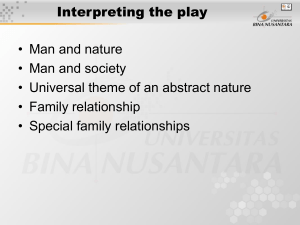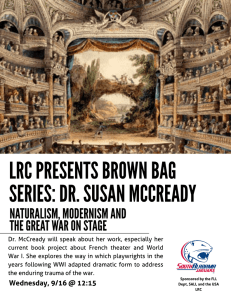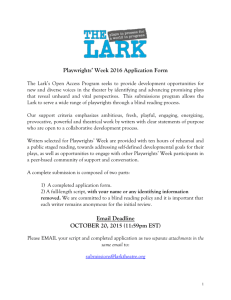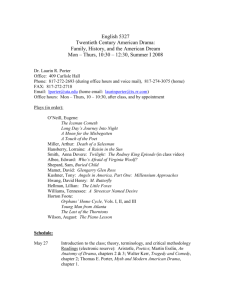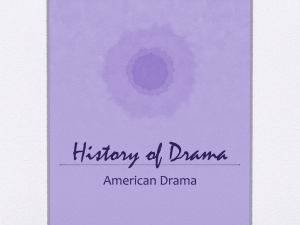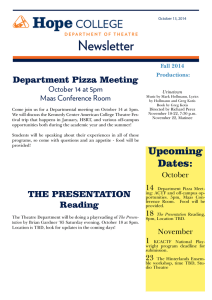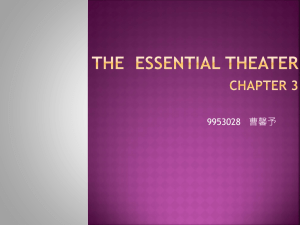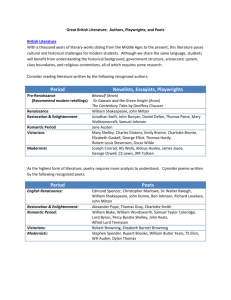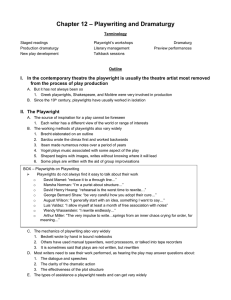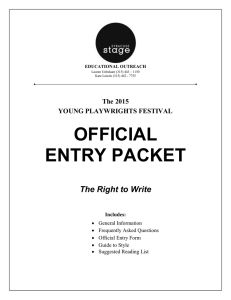recommended reading - Playwrights Workshop of Brevard
advertisement
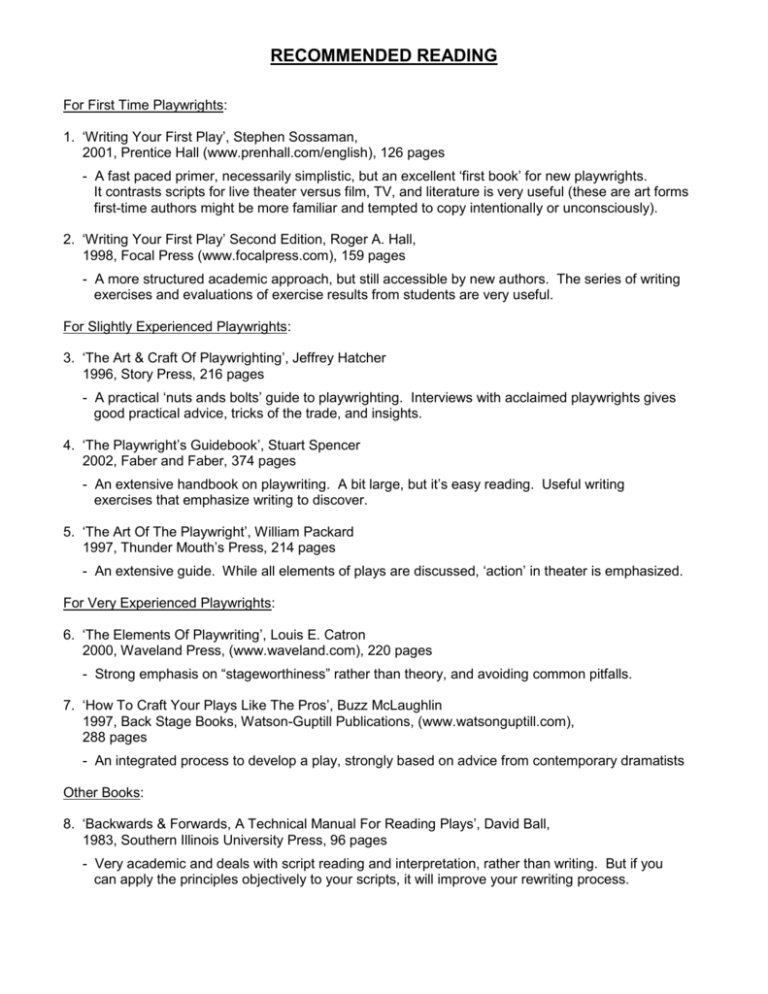
RECOMMENDED READING For First Time Playwrights: 1. ‘Writing Your First Play’, Stephen Sossaman, 2001, Prentice Hall (www.prenhall.com/english), 126 pages - A fast paced primer, necessarily simplistic, but an excellent ‘first book’ for new playwrights. It contrasts scripts for live theater versus film, TV, and literature is very useful (these are art forms first-time authors might be more familiar and tempted to copy intentionally or unconsciously). 2. ‘Writing Your First Play’ Second Edition, Roger A. Hall, 1998, Focal Press (www.focalpress.com), 159 pages - A more structured academic approach, but still accessible by new authors. The series of writing exercises and evaluations of exercise results from students are very useful. For Slightly Experienced Playwrights: 3. ‘The Art & Craft Of Playwrighting’, Jeffrey Hatcher 1996, Story Press, 216 pages - A practical ‘nuts ands bolts’ guide to playwrighting. Interviews with acclaimed playwrights gives good practical advice, tricks of the trade, and insights. 4. ‘The Playwright’s Guidebook’, Stuart Spencer 2002, Faber and Faber, 374 pages - An extensive handbook on playwriting. A bit large, but it’s easy reading. Useful writing exercises that emphasize writing to discover. 5. ‘The Art Of The Playwright’, William Packard 1997, Thunder Mouth’s Press, 214 pages - An extensive guide. While all elements of plays are discussed, ‘action’ in theater is emphasized. For Very Experienced Playwrights: 6. ‘The Elements Of Playwriting’, Louis E. Catron 2000, Waveland Press, (www.waveland.com), 220 pages - Strong emphasis on “stageworthiness” rather than theory, and avoiding common pitfalls. 7. ‘How To Craft Your Plays Like The Pros’, Buzz McLaughlin 1997, Back Stage Books, Watson-Guptill Publications, (www.watsonguptill.com), 288 pages - An integrated process to develop a play, strongly based on advice from contemporary dramatists Other Books: 8. ‘Backwards & Forwards, A Technical Manual For Reading Plays’, David Ball, 1983, Southern Illinois University Press, 96 pages - Very academic and deals with script reading and interpretation, rather than writing. But if you can apply the principles objectively to your scripts, it will improve your rewriting process.

